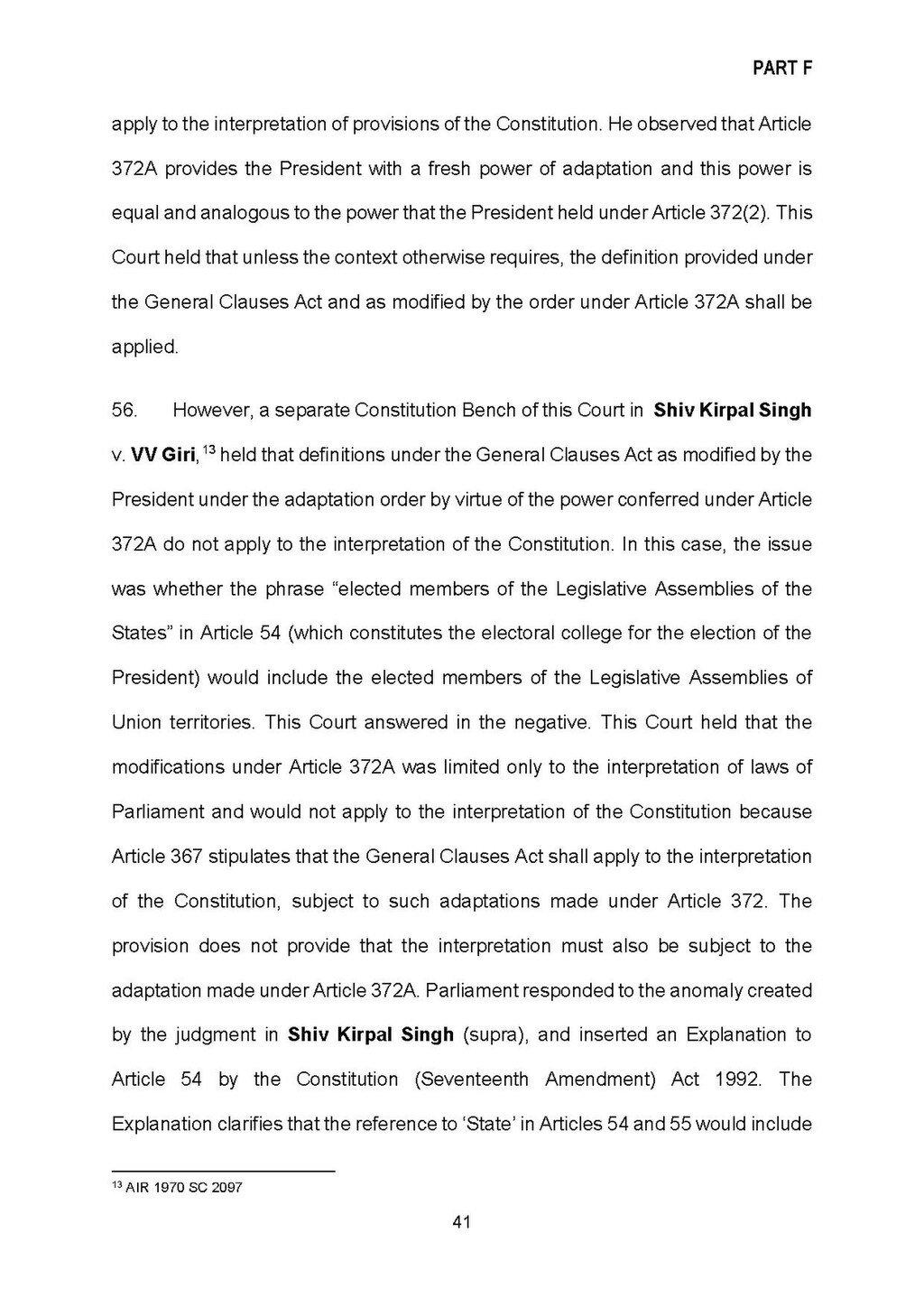apply to the interpretation of provisions of the Constitution. He observed that Article 372A provides the President with a fresh power of adaptation and this power is equal and analogous to the power that the President held under Article 372(2). This Court held that unless the context otherwise requires, the definition provided under the General Clauses Act and as modified by the order under Article 372A shall be applied.
56. However, a separate Constitution Bench of this Court in Shiv Kirpal Singh v. VV Giri,[1] held that definitions under the General Clauses Act as modified by the President under the adaptation order by virtue of the power conferred under Article 372A do not apply to the interpretation of the Constitution. In this case, the issue was whether the phrase “elected members of the Legislative Assemblies of the States” in Article 54 (which constitutes the electoral college for the election of the President) would include the elected members of the Legislative Assemblies of Union territories. This Court answered in the negative. This Court held that the modifications under Article 372A was limited only to the interpretation of laws of Parliament and would not apply to the interpretation of the Constitution because Article 367 stipulates that the General Clauses Act shall apply to the interpretation of the Constitution, subject to such adaptations made under Article 372. The provision does not provide that the interpretation must also be subject to the adaptation made under Article 372A. Parliament responded to the anomaly created by the judgment in 'Shiv Kirpal Singh (supra), and inserted an Explanation to Article 54 by the Constitution (Seventeenth Amendment) Act 1992. The
Explanation clarifies that the reference to ‘State’ in Articles 54 and 55 would include
- ↑ AIR 1970 SC 2097
41
